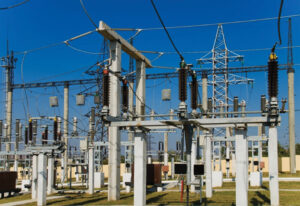Special topics

The construction of a US$953million 400MW power plant, known as the Bridge Power, has commenced in Tema, with the first 200MW expected to come on-stream by close of this year.
The project is expected to address the long-term energy requirements of Ghana by providing over 17percent of the country’s reliable generating capacity.
The project, which is funded by the EPL Consortium– made up of GE Power, Endeavor Energy, and Sage– can be powered by either LPG, natural gas, or diesel
Leslie Nelson, Chief Executive Officer of GE Ghana told the B&FT that: “Our understanding of Ghana’s long-term vision for its power sector is built on having reasonably priced, reliable, and diversified energy. The Bridge Power project checks all those boxes.
By including dedicated LPG importation and storage infrastructure and with the capability to also run on natural gas or diesel, the Bridge Power project provides for fuel diversification, an essential part of the nation’s power strategy.”
He added that: “Moreover, the project has been specifically designed to switch to indigenous natural gas once available, which will help accelerate the development of Ghana’s natural gas reserves.
Current electricity demand for the country stands at about 2,225MW. This is growing by 10 percent per annum and is expected to hit 7,000MW by 2030.
Presently, VRA and other Independent Power Producers (IPPs) together have an installed capacity of 3,644MW.
However, constraints on fuel sources for power generation — crude oil, gas and water for hydro power generation — have necessitated the need for exploring cost-effective, reliable, and clean energy and power sources.
Given the current gas demand of about 450Mscf per day, indigenous gas and limited supply from the West Africa Gas Pipeline are unable to meet demand. Available indigenous gas is also expected to run out by 2036, according to energy experts
The Bride Power generating plant to run on either LPG, natural gas, or diesel takes into consideration the current fuel supply challenges and ensure all-year-round supply of power from the generating facility when completed.
“This strategy is designed to move the country’s power fleet away from expensive sources of fuel and to meet requirements of the government to provide to a model with lower cost fuels and with the risk of supply being borne by projects’ sponsors,” Mr. Nelson said.
The project phases
Phase one of the project will see the installation of five gas turbines and one purpose built GE steam turbine capable of generating 200MW of power.
The second phase of the project will see the installation of another batch of four gas turbines and one purpose-built GE steam turbine to add additional 200MW of power.
The project will have the characteristics of an emergency power project, but at a long-term baseload tariff rate.
The EPL consortium comprises Endeavor Energy, a leading independent power development and generation company focused on Africa; Sage, a leading independent energy trading firm in Ghana; and GE (General Electric).
Endeavor is the largest shareholder in Bridge Power and is leading the development together with GE. The consortium members will collectively be responsible for operations and maintenance of the project with the support of a long-term [equipment] service agreement from GE. Endeavor will be responsible for Bridge Power’s commercial management and construction management.
Innovative financial model
Ghana has traditionally used a Government Consent and Support Agreement (GCSA) which offers the full Government of Ghana guarantee of all of Electricity Corporation of Ghana (ECG)’s obligations.
But, according to Mr. Nelson, the Bridge Power project is the first in Ghana to use a Put Call Option Agreement (PCOA).
“With this model, Government would buy the plant and its associated infrastructure in the unlikely event of an early termination of the Power Purchase Agreement (PPA). If the default is by EPL, the purchase price will be no more than 70 percent of the overall project cost,” he noted.
The cost of development and construction of the full 400 MW and the fuel import and storage infrastructure will be borne 100percent by equity invested and debt raised by the consortium.
Other benefits
Bridge Power is structured as a long-term combined cycle IPP (Independent Power Producer) project. It will operate under a 20-year PPA and its power is priced accordingly and considered as one of the cheapest.
At 12.5cents per kilowatt hour (kWh), Bridge Power, according to Mr. Nelson, will deliver power at one of the lowest costs among the country’s IPPs, whose tariffs currently range between 13 to 20cents per kilowatt hour.
“Bridge will have a positive impact for Ghanaian both the short and long term, first through the rapid deployment of initial power that will help Ghana meet near term power shortages and later with the efficient full 400MW power plant that will help the country meet its long-term power needs whilst lowering the overall cost of power generated,” he added.
Mr. Nelson noted that the project will directly create hundreds of jobs during both the construction and operation phases.
“More important, the nature of the Project in bringing much needed reliable and affordable electricity to Ghana will have an immediate positive impact on the running of schools, factories, offices, other local businesses, hospitals, and households,” he added.
Source: http://thebftonline.com/commodities/oil-gas/24143/construction-of-us1bn-400mw-bridge-power-begins.html#sthash.K62Cqtkp.dpuf